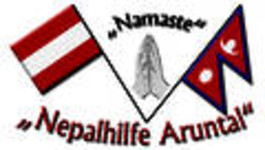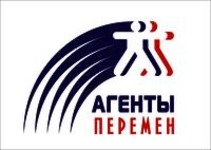The Way out of Poverty is the Way to School
Investing in schools and education projects is the best way to give young people a fulfilled life. Because if they have sufficient education, they can take control of their lives and make considered decisions.
Building schools in the villages and providing courses for teachers there, to also promote reproductive health awareness and guidance on hygiene practices, is an essential component of our campaign. After the large series of earthquakes, many school classes are still housed in makeshift buildings or schools in very poor condition. We are working with partners to enable the construction of resilient and earthquake-resistant schools.
Education has always been a central concern of EcoHimal's humanitarian work and that is why we finance with donations and sponsors not only the education of currently 16 children and young people in the boarding school in Kathmandu, in our EcoHimal Academy (the Bibhuti National School was recently re-integrated into the Arunodaya Academy), as well as in the schools in those villages from which the children actually come. Those who have already completed their 10+2 education, we support with scholarships in further education, studies or courses that qualify them for socially relevant professions.
The cost for a student is around 1.000 Euros per year, which includes school fees, accommodation/boarding, clothing and school materials as well as some excursions.
Earthquake-proof Schools and Educational Measures
Together with local partners, the Earthquake Relief Rehabilitation Programme (ERRP), sponsors and donations from Austria and Germany, with the Rotary Club Durbar Marg Kathmandu, the Children's Fund Germany and with Nepalhilfe Aruntal from Upper Austria, a number of schools have been built or are still under construction in recent years.
The Janajagaran Basic School in Buhmlu Rural Municipality, Kavrepalanchowk District, is one of these schools that was recently completed. The earthquake had destroyed 80% of the school at the time and it was necessary to build a new two-storey school with four classrooms to make it earthquake-proof. A school like the one pictured costs around 45,000 Euros.
In 2022, the construction of a school centre was started in Dolpo District, one of the poorest districts in Nepal. As part of our campaign The way out of poverty is the way to school, we want to build the school and residential buildings for children and young people with special needs.
The local non-governmental organisation Mukuteshwor Sewa Samaj (MSS), which runs a Disabled Resources Class at Dhurba Tara Basic School in Thulibheri Municipality, was donated building land by a local donor. This is large enough to adapt the school to the much greater need and to considerably expand the small attached dormitory. Only 32 disabled children could be accommodated there, but there is a need for 120. The expansion of the school is the basic prerequisite to be able to conduct classes on the MSS premises together with the dormitory.
The MSS plans to provide regular classes with all the necessary facilities such as dormitory, classrooms, library, staff rooms, extracurricular rooms and gender-friendly sanitary facilities. The requirements for school operation and accommodation on the site are eight rooms, which have to be earthquake-proof. Once completed, the school and the local community will pay for regular school operations and any maintenance work.
The Mukuteshwor Sewa Samaj is the most important association for people with disabilities and fights for the rights of these people. With this project we want to help children and young people who need special attention and with the support of donations and the charitable organisations mentioned above we will succeed!
The first rooms for accommodating children and young people were handed over to the school management at the end of 2022.
Kontakt
EcoHimal Austria Gesellschaft für Zusammenarbeit Alpen-Himalaya
Hofhaymer Allee 11/17
5020 Salzburg
E-Mail: office@ecohimal.org
T: +43 662 829492
ZVR Zahl: 886266575


























